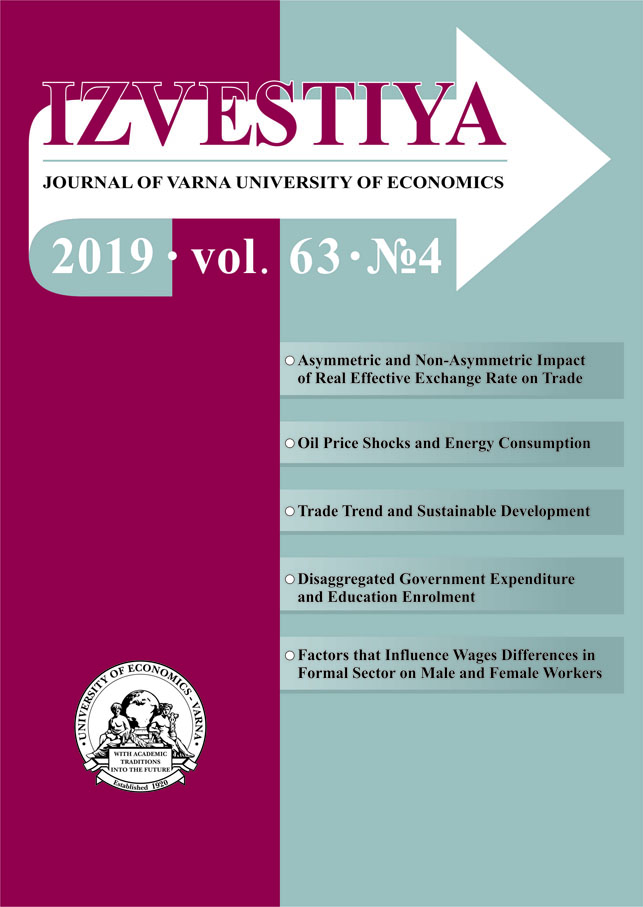Asymmetric and Non-Asymmetric Impact of Real Effective Exchange Rate on Trade in Nigeria
Asymmetric and Non-Asymmetric Impact of Real Effective Exchange Rate on Trade in Nigeria
Author(s): Adedayo Emmanuel Longe, Folake Adenola, Adewale Musliudeen Balogun, Shehu MuhammadSubject(s): Economy, National Economy, Business Economy / Management, Micro-Economics
Published by: Икономически университет - Варна
Keywords: Trade services; real effective exchange rate; ARDL; NARDL
Summary/Abstract: The trend of trade in Nigeria has been a major concern in the economy over the years. The trend has been traced to the risk furnished by the unstable nature of the real effective exchange rate of the naira on traders. On this note, the study investigates the asymmetric and non-asymmetric impact of the real effective exchange rate on trade in Nigeria using secondary data from 1980 to 2017. The study adopts both ARDL and NARDL technique to analyse the data. From the ARDL estimate, it was revealed that the real effective exchange rate has a significant negative impact on trade services in Nigeria. For the NARDL estimates, the findings show that there is an insignificant negative impact of both negative and positive changes in real effective exchange rate on trade in Nigeria. The implication of this is that non-asymmetric real effective exchange rate is a significant determinant of trade in Nigeria. The study therefore recommends that there is a need to devise strategic policies that will aid trade (most especially export) in Nigeria to enhance the currency value to other major countries of the world. Therefore, diversification of the export base product objective of the Central Bank of Nigeria current administration is supported by this study.
Journal: Izvestiya. Journal of Varna University of Economics
- Issue Year: 63/2019
- Issue No: 4
- Page Range: 259-274
- Page Count: 16
- Language: English

